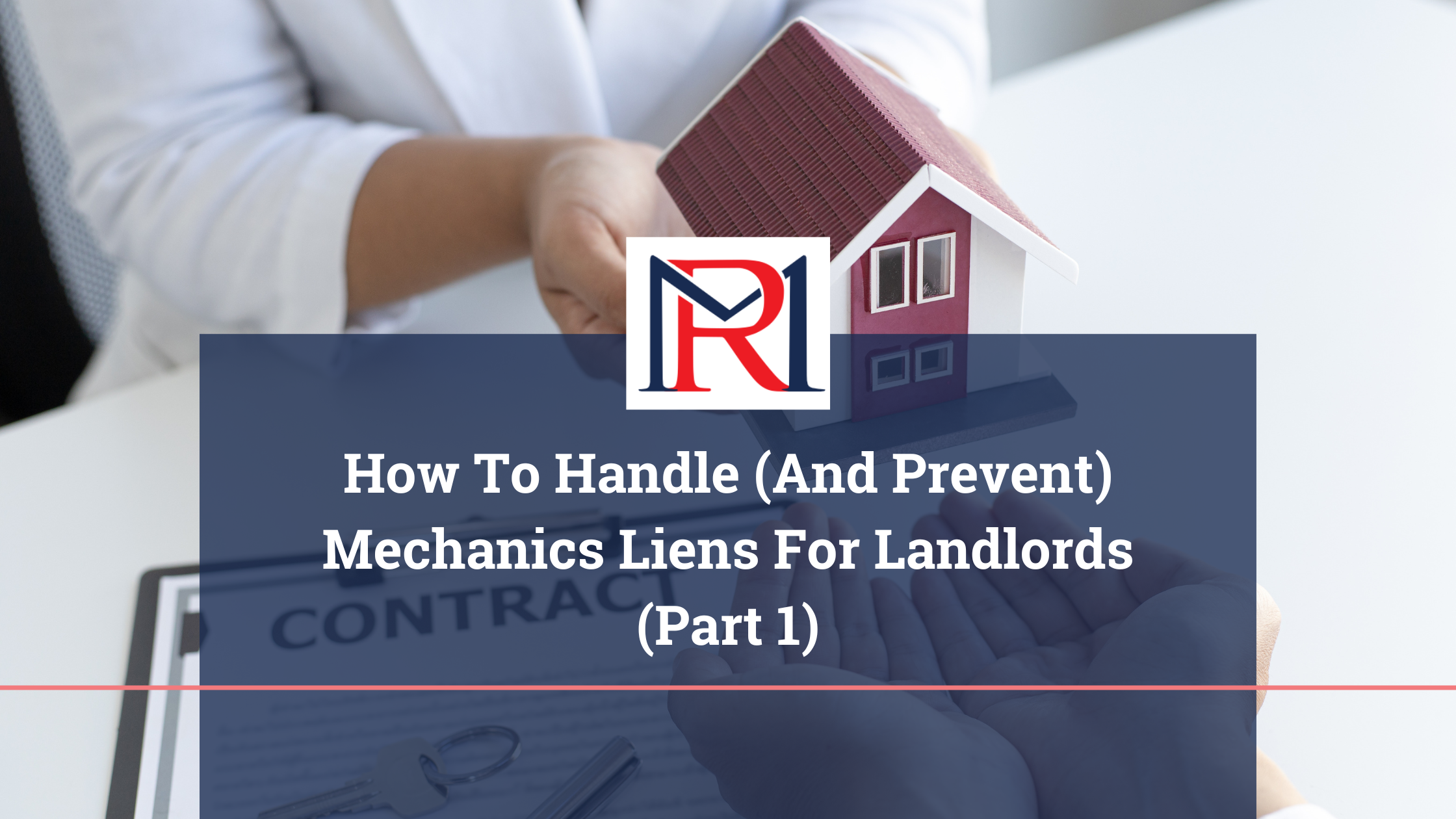How To Handle (And Prevent) Mechanics Liens For Landlords (Part 1)
February 14, 2024 | Uncategorized

In the construction industry, subcontractors and landlords often face a series of legal challenges that can escalate to litigation. This month’s blog looks at mechanics liens and how a landlord may be forced to deal with one. Because mechanics’ liens are significant legal obstacles for both subcontractors and landlords alike, our blog will examine them from the subcontractor’s point of view next month.
Mechanics liens are legal claims against a property by a subcontractor or supplier and may be used when a subcontractor has not been paid for their work. A subcontractor or supplier may also be owed compensation for the materials they bought to complete the project. Understanding mechanic’s liens, how to handle them, and the technical objections involved is crucial for any landlord whose tenants are doing renovations. For example, if the tenant leaves mid-project, is the landlord legally responsible for paying their debts to the contractor? Recent legal developments, influenced by the proactive efforts of firms like Rodriguez-McCloskey PLLC, have reshaped the landscape, particularly affecting landlords’ liability.
Understanding Mechanic’s Liens
Mechanic’s liens serve as a security interest in the title of a property for the benefit of those who have supplied labor or materials that improve the property. When a subcontractor or supplier isn’t paid, they can file a mechanic’s lien against the landlord to ensure payment. Notably, these liens are not dischargeable, meaning they cannot be easily eliminated or reduced, securing a strong position for the claimant subcontractor or supplier.
Handling a Mechanic’s Lien
Property owners and landlords should understand their rights and obligations; having an attorney can be highly beneficial. When a mechanic’s lien is filed against you or your property, it’s vital to address it promptly to avoid additional liability. It’s here where technical objections come into play—these are legal strategies used to challenge the validity of the lien. Proper legal guidance is necessary to identify and utilize these objections effectively.
From The Landlord’s Perspective
Let’s explore a scenario that illustrates how difficult this can be from a landlord’s point of view. A tenant planning to open a commercial business requests the landlord’s consent for renovations. Legally, the landlord is obliged to sign this request. However, suppose the tenant faces financial difficulties. They leave the construction incomplete, the rent unpaid, and the contractor uncompensated. To complicate matters, the tenant, a non-U.S. citizen, returns to their country of origin. The unpaid contractor then decides to sue the landlord. Why? Because the landlord was the person who consented to the work to be done on the property that they owned.
In this case, the landlord was not held liable. The landlord was not responsible for the tenant’s contractual obligations with third parties, including contractors. The mechanic’s lien, in this instance, did not extend to implicating the landlord for the tenant’s financial missteps. This distinction is crucial and a prime example of understanding the legal nuances in such situations.
Rodriguez-McCloskey PLLC
Navigating the legal challenges in construction, particularly concerning mechanic’s liens and subcontractor issues, requires legal guidance. At Rodriguez-McCloskey PLLC, we have a track record of successfully advising and representing clients in these complex matters. Our experienced team can provide you with the necessary legal support to protect your interests and resolve disputes effectively. If you’re facing challenges related to mechanic’s liens or any other construction-related legal issues, contact us for a free consultation.
